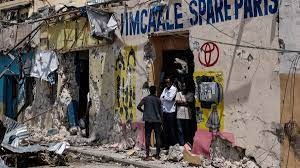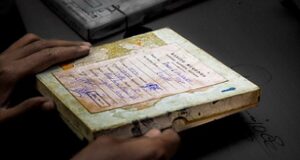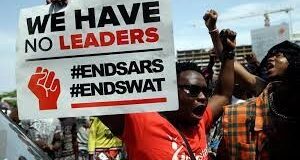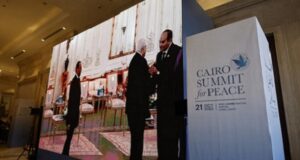January 28, 2023

FILE – More than 300 Muslim clerics have declared their support for the government’s war against the Islamist militant group al-Shabab, which has attacked much of Somalia, including this building in Mogadishu as seen on Aug. 21, 2022. PHOTO: AFP
By Ahmed Mohamed | VOA News
MOGADISHU, Somalia – More than 300 Muslim clerics meeting in Somalia’s capital this week have declared their support for the government’s war against the Islamist militant group al-Shabab.
The clerics issued their declaration following a four-day conference of Muslim scholars that ended Thursday with the formation of a Supreme Council. It was the first time in years that Somali clerics from all sects of Islam came together to denounce terrorism. Even the conservative Wahhabi sect, which has been accused of sympathizing with al-Shabab, participated.
The coming together of Somali clerics from different ideological persuasions is one of the Somali government’s most ambitious attempts to pull religious leaders into the war against terrorism.
The meeting is part of the government’s triple offensive against al-Shabab, which includes military and financial operations in addition to countering extremist propaganda.
When Prime Minister Hamza Barre closed the conference, he said it will be instrumental in winning the war against al-Shabab and other extremist elements.
He said it is the first time he has seen different sects of clerics sitting together and issuing a statement together. He said they are fighting an enemy, whom the clerics have called Khawarij, and he is happy they have joined the fight.
Sheikh Aweys Abdi, who participated in the conference, called for an uprising against al-Shabab.
“Those they kill and target with explosions and term as infidels are all Muslims. Therefore, they should be fought,” he said. “Any soldier who kills al-Shabab or is being killed by the Shabab is a martyr.”
Attacking al-Shabab
The Somali government has been waging a military campaign against al-Shabab since July last year. In central regions, government forces working with clan militia have captured a series of towns and villages and say they have killed more than 2,000 al-Shabab fighters.
Analysts say enlisting religious leaders is another crucial step in attacking al-Shabab from several fronts. Abdiaziz Issack, a security analyst with a cultural and research organization known as the Hamad Bin Khalifa Civilization Center in Denmark, said the government is right to bring clerics into the campaign.
“Religious leaders, just like clan elders in Somalia, are very influential,” he said. “Al-Shabab relies on twisting Islamic teachings to drive their ideology, so the clerics can effectively counter that narrative by drawing the line between truth and falsehood.”
Issack said that, though al-Shabab spreads its ideology in mosques and affiliated media, the government might be able to counter those narratives, given the number of clerics on its side.
Waging ideological warfare
“Al-Shabab has its team of clerics, too, but they are few, and if all pro-government clerics join forces, they can easily counter them,” said Issack. “The government will need to increase funding to the religious affairs ministry and screen the imams to ensure al-Shabab does not infiltrate mosques.”
According to Ahmed Abdihadi Abdullahi, the founder of Somali Civic House, a governance think tank in Mogadishu, the conference of clerics and declaration against al-Shabab is a major step in challenging the group’s use of religion to advance its terrorist agenda.
“For the clerics to come together and make clear that al-Shabab’s ideology is not based on Islam is a good move and could contribute a lot to the ideological warfare against the group,” said Abdullahi.
Abdullahi said the open defiance by the religious leaders is a strong statement considering the targeted assassinations of pro-government clerics by al-Shabab.
“Al-Shabab previously killed many clerics, and that those clerics who attended the conference came despite that risk,” he said “The government and its forces are not now capable of guaranteeing security for these clerics, but for now, the assassinations by the group have gradually decreased.”
The Somali government hopes that by enlisting the support of religious leaders, it can make gains in its ongoing war against al-Shabab, which has been fighting the government since its emergence in 2007.
Last year, Prime Minister Barre picked former al-Shabab number two Mukhtar Robow as religious affairs minister, as part of attempts to deflate al-Shabab ideology.
As the government campaign enters its eighth month in February, the Somali government is preparing to open new battle fronts in southern parts of the country.
 Banadir weyne:: Somali news :: Your source of news and information about Somalia Somali news
Banadir weyne:: Somali news :: Your source of news and information about Somalia Somali news



